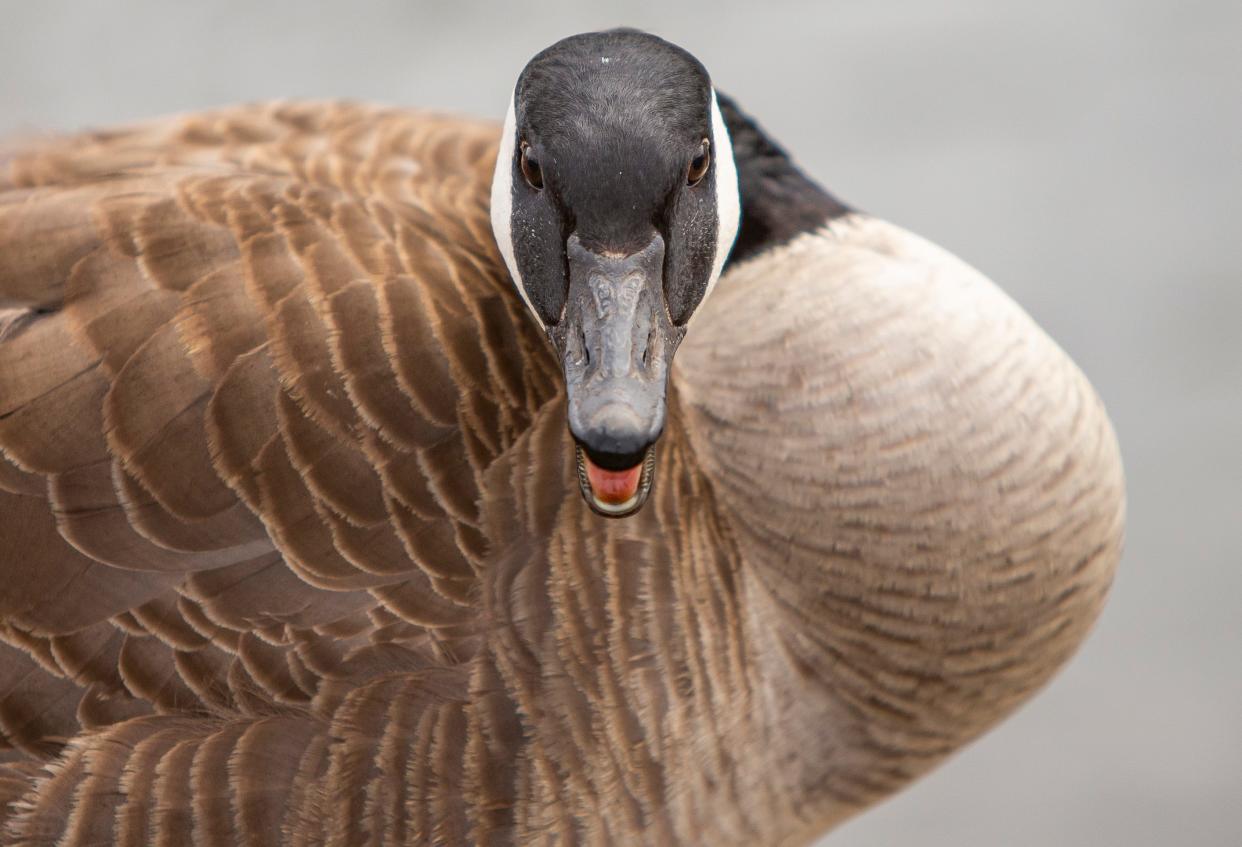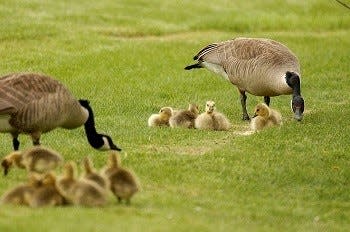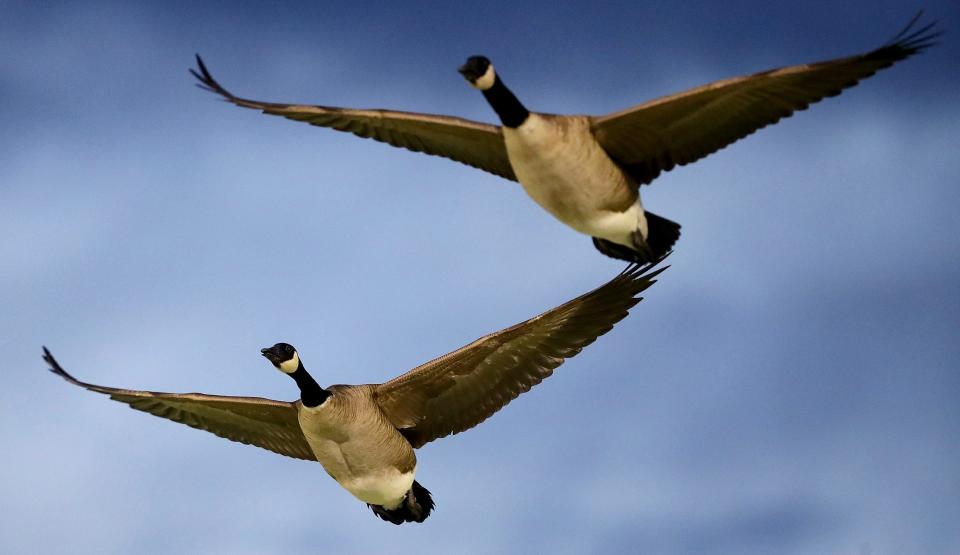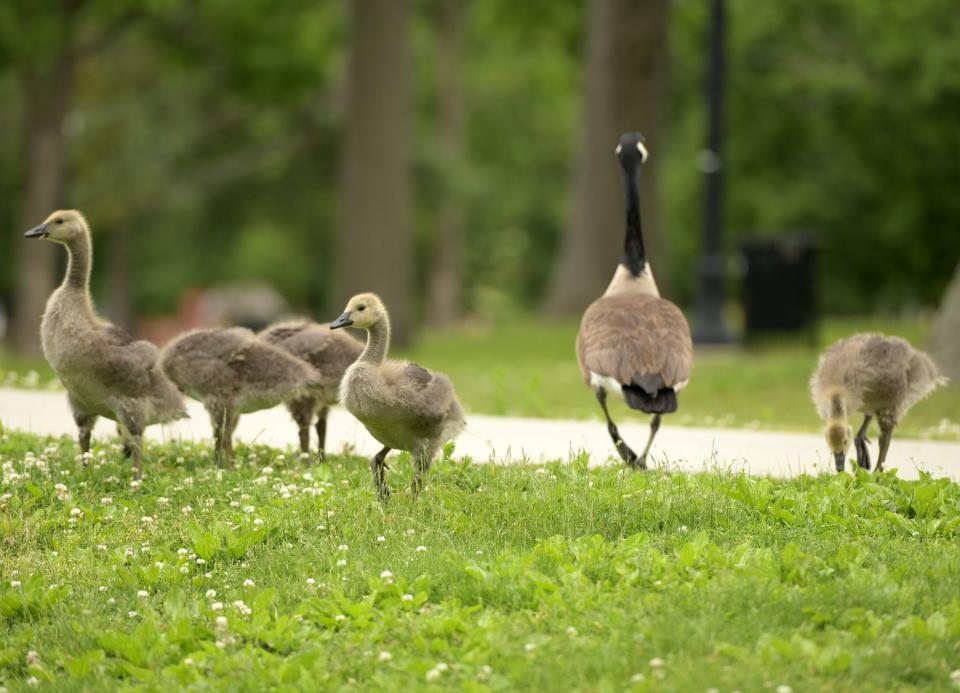Canada geese a problem in your neighborhood? Take a gander at these tips to deal with them

They can be found in every county in Michigan. In some parts of the state people see them and hear their honking (or hissing) year-round.
You can’t escape Canada geese.
And in June and July, these birds are often found on lakes and golf course ponds, feeding on lush lawns while molting - the annual loss of their flight feathers - which takes about two weeks.
Canada geese are unable to fly during molting and as such could be hanging around your pontoon more often.
To help deal with the potential nuisance, here are three tips from the Michigan Department of Natural Resources on how to prevent conflicts with these feathered neighbors.

1. Make your yard less attractive for geese
Urban and suburban developments with manicured lawns, abundant water bodies and refuge offer all the resources geese need to thrive. Geese are especially attracted to heavily fertilized, watered and mowed lawns.
"If you live on a lake and geese frequently visit your yard, try making your lawn less attractive to them by allowing your grass to grow long and cutting down on fertilizer and water, or try planting shrubs to create a barrier between your lawn and the water," said Barbara Avers, a waterfowl and wetland specialist with the DNR.
Repellents, like those made from grape extract, may help deter geese in the short-term from feeding on grass.

2. Don’t feed them
Intentionally feeding Canada geese can attract them to an area, making them comfortable around people, potentially increasing overcrowding and spreading disease among the birds.
So don’t.
Geese are herbivores and are important in their ecosystem as they distribute seeds from the various plants they consume. They prefer grass shoots, aquatic vegetation, seed heads, birdseed and various grains.
Canada geese can go up to 30 days without food if necessary. Artificial feeding is not necessary for their survival and can be harmful to their health.
It also can create a resident population that does not migrate, and these geese can become a nuisance.

3. Use scare tactics
"You may also want to use scare tactics to frighten them away without harming them," Avers said. "Use a combination of loud noises such as shell crackers, bird alarms or bird bangers, distress cries, screamers and electronic noise systems, along with visual deterrents like bird scare balloons, Mylar scare tape and plastic flags."
However, don’t touch nests or eggs. They are protected under federal law and it is illegal to touch, move, or possess any part of the nest or eggs without the proper permit, according to the DNR.
Michigan has special goose hunting seasons established in cooperation with the U.S. Fish and Wildlife Service in early September, January and February to target resident geese. Season dates and bag limits can be found in the current Waterfowl Hunting Digest, found online at Michigan.gov/Waterfowl.
In many urban areas, hunting may not be allowed and in that case specially permitted nuisance control companies can be hired to assist landowners with geese control programs.
You can contact your local DNR office if there is an aggressive Canada goose causing a public safety risk, farm damage or an inappropriate nest in your area. The Lansing DNR office can be reached at 517-284-4720.
For more questions about geese conflicts or hunting, people can contact the DNR Wildlife Division at 517-284-9453.
Canada goose quick facts
Life span: 12 years in the wild on average
Size: 4-foot to 5.6-foot wingspan
Clutch size: Two to 10 eggs
Sounds: They will hiss when threatened but are best known for their honking
Habitat: Open, grassy habitats near water including ponds, marshes, rivers or coastlines
Contact Bryce Airgood at 517-267-0448 or bairgood@gannett.com. Follow her on Twitter @bairgood123.
This article originally appeared on Lansing State Journal: Canada geese are a problem. Michigan DNR offers tips to deal with them

